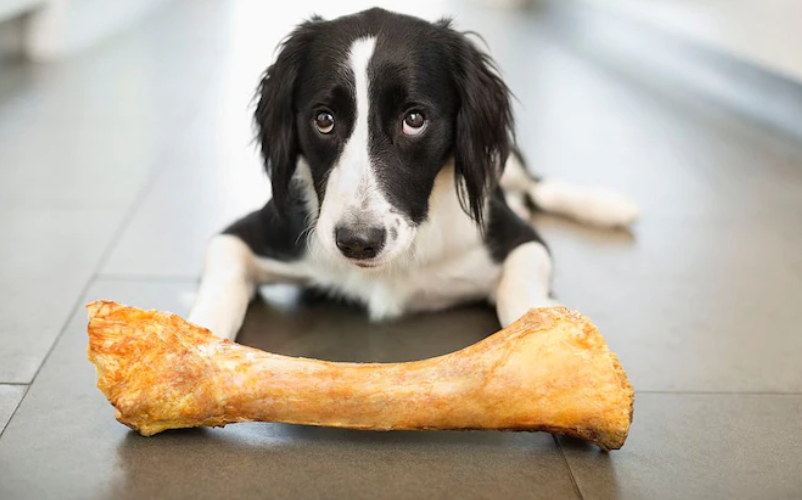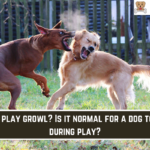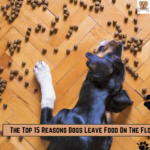Introduction:
As responsible pet owners, ensuring the well-being of our canine nutrition is a top most priority . While it’s tempting to share our favourite foods with our dogs, it’s crucial to be aware that not all human foods are safe for them . Some common foods can be toxic and harmful to dogs and it could lead to serious health issues . In this blog post, we’ll explore the ten foods you should never feed your dog to help you keep your canine nutrition happy and healthy .
- Chocolate:
Chocolate contains theobromine, a stimulant that affects the nervous system and cardiovascular system in dogs . Dark chocolate and baking chocolate have higher theobromine levels, making them especially dangerous . Ingesting chocolate can lead to symptoms such as vomiting, diarrhoea, rapid breathing and in severe cases even death .
- Grapes and Raisins:
Grapes and raisins may seem harmless but they can cause kidney failure in dogs . Even small amounts can be toxic leading to symptoms like lethargy, vomiting and loss of appetite . It’s best to avoid giving your dog any foods containing grapes or raisins .
 “Grapes and raisins may be sweet for us but are toxic for our furry friends. Keep them far away from Canine Nutrition
“Grapes and raisins may be sweet for us but are toxic for our furry friends. Keep them far away from Canine Nutrition - Onions and Garlic:
Onions and garlic, whether raw, cooked or in powdered form contain compounds that can damage a dog’s red blood cells leading to anaemia . Avoid feeding your dog any foods seasoned with onion or garlic and be cautious of ingredients in prepared dishes .

- Avocado:
While avocados are a canine nutrition choice for humans they contain a substance called person that can be toxic to dogs causing stomach upset, vomiting and diarrhoea . The pit is also a choking hazard so keep avocados out of your dog’s reach .
- Alcohol: Avoid from canine nutrition
Alcohol even in small amounts can be extremely dangerous for dogs . It can cause intoxication leading to symptoms like disorientation, vomiting and even coma . Never intentionally give your dog alcoholic beverages and be mindful of spills or unattended drinks .
- Xylitol:
Found in sugar-free gum, candies and some baked goods, xylitol is a sugar substitute that can be deadly for dogs . It causes a rapid release of insulin leading to hypoglycemia (low blood sugar), seizures and liver failure . Keep all xylitol-containing products away from your dog .

- Caffeine:
Caffeine is not good for canine nutrition present in coffee, tea, energy drinks and certain medications . Ingesting caffeine can lead to restlessness, rapid breathing, increased heart rate and in severe cases collapse. Keep caffeinated products well out of your dog’s reach .
- Fatty Foods:
High-fat foods like bacon, sausage and fried items can lead to pancreatitis in dogs . This painful inflammation of the pancreas can result in vomiting, diarrhoea and abdominal pain . Stick to a balanced and dog-friendly diet to avoid such health issues .
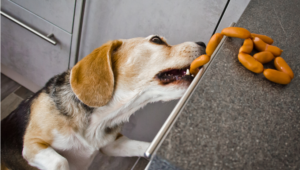 Fatty foods can lead to pancreatitis. Stick to a balanced canine diet!
Fatty foods can lead to pancreatitis. Stick to a balanced canine diet! - Dairy Products:
Many dogs are lactose intolerant and feeding them dairy products can lead to digestive upset including diarrhoea and abdominal discomfort . While small amounts of plain unsweetened yoghurt may be tolerable for some dogs . it’s best to avoid most dairy .
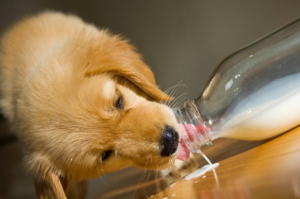
- Bones:
Cooked bones especially from poultry or fish can splinter and cause internal injuries or blockages in a dog’s digestive system . Instead of giving your dog cooked bones opt for safe alternatives like commercially available raw bones designed for canine consumption

Conclusion:
Understanding what not to feed your dog is crucial for maintaining their health and well-being . While it’s tempting to share our meals with our canine companions . it’s essential to prioritise their specific dietary needs . Consult with your veterinarian to create a nutrition plan tailored to your dog’s individual requirements and always err on the side of caution when it comes to feeding your furry friend .
